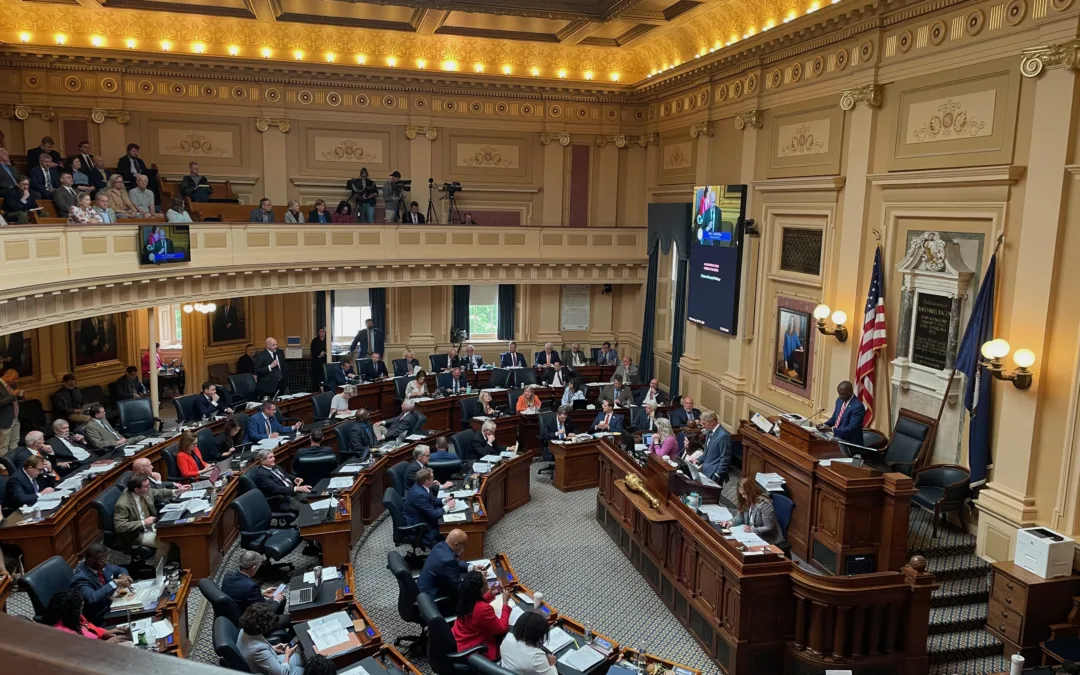
Company looks for a minimum of 500 Virginia children to join the planned clinical trials.
RICHMOND – We’re one step closer to getting a viable COVID-19 vaccine for children. Moderna announced this week they’re going to be launching clinical trials soon, in order to get their product cleared by the federal government.
What does that have to do with Virginia, specifically? The first trial will be held in Richmond and the company is looking for children to take part.
Moderna’s version of the COVID-19 vaccine first arrived in Virginia in Dec., but only for adults. Nearly three months into the inoculation process, the company plans to expand their testing of the vaccine on younger populations.
The trials will study children between the ages of six months to less than 12 years. Moderna just started work in December on a version for those between 12 to 18. It’s not ready for clinical tests yet.
By the time its finished, company officials plan to have trials in both the United States and Canada, with a goal of enrolling about 6,750 kids.
Similar to the adult population – which the vaccine received approval for in those 18 years and older – children will receive their first and second dose 28 days apart.
Virginia Trials
In the Commonwealth, the children’s Moderna trials will begin during the first week of April. Clinical Research Partners, a research center in Richmond, will conduct the trial.
Dr. Richard Bennett, primary investigator of clinical research at Clinical Research Partners, said that the center hopes to have a minimum of 500 child participants. He further noted the importance of diversity in trials, calling it “crucial in research.”
For this trial, researchers plan to note the safety and effectiveness of the two mRNA-1273 doses. They also hope to pinpoint the correct dosage amount of the vaccine for children.
“The dose will vary upon the age of the child,” Bennett said.
Bennett also expressed other outcomes he hoped to see arise from the children’s clinical trial.
“We hope the vaccine confers herd immunity by the appropriate method, inferred efficacy and vaccinated children are safe [and] healthy, while keeping those loved ones around them safe,” Bennett said.
Immunization History
Vaccinating children is not a new practice. It did not arise amidst the COVID-19 pandemic.
Edward Jenner, an English physician, performed the first successful inoculation in the world’s history in either 1796 or 1798, according to various sources.
With the smallpox disease ravaging England, Jenner sought a solution. Supposedly, Jenner heard that dairy workers who contracted cowpox – a disease with similarities to smallpox – became immune to smallpox.
He collected a liquid sample of the cowpox infection from a dairymaid. Then, he selected a healthy male on whom he introduced the disease.
Surprisingly, Jenner did not test the theory on an adult. Rather, he performed his experiment on an eight-year-old boy named James Phipps.
Several weeks after Phipps’ exposure to cowpox, Jenner introduced smallpox to the boy’s body. Thankfully, Phipps did not have an adverse reaction to the smallpox disease, proving Jenner’s theory.
Smallpox became the world’s first eradicated disease in 1977.
Childhood Immunization Facts
It might come as a surprise to some, but modern-day newborns should receive their first vaccine, Hepatitis B, within 12 hours of birth. The guidance comes directly from the Centers for Disease Control and Prevention.
Infants typically receive their second dose of the Hepatitis B vaccine by or at their two-month appointment.
Finally, nurses administer a third round of vaccine against the same virus by or at their 18-month check up.
According to Aetna’s Immunization Schedule, by the time a child reaches his or her 18th birthday, they’ve underwent an average of 30 to 32 immunizations. That number does not include optional annual influenza vaccinations.
The vaccinations range, protecting children from common childhood illnesses like chickenpox to warding off potentially fatal ailments like measles and mumps.
The Takeaway For Clinical Trials
Around for hundreds of years, many vaccines are safe and effective for children.
Of course, parental choices and religious convictions also play an important role in whether or not a child receives every vaccine a health professional offers.
However, for Bennett’s children? They’ll be among the 500 kids in the clinical trial.
“I would only participate in the trial if it were safe,” Bennett said. “I am enrolling my children and appropriate aged family members.”
Amie Knowles reports for Dogwood. You can reach her at [email protected]
JOIN THE CONVERSATION: Sign Up For Dogwood’s Newsletter
Politics

Youngkin, Democrats to start over on budget talks
The Republican governor stood with Democratic leaders in the General Assembly on Wednesday in a bid to ease tensions over their budget debate....

VIDEO: Domestic abuse victims speak out against the gun law bills Gov. Glenn Youngkin vetoed
Senate Bill 47 and House Bill 46 aim to close the loophole that allows offenders to transfer their firearms to someone else instead of relinquishing...
Local News

Virginia verses: Celebrating 5 poetic icons for National Poetry Month
There’s no shortage of great writers when it comes to our commonwealth. From the haunting verses of Edgar Allan Poe, who found solace in Richmond's...

Join the fun: Recapping Family Literacy Night’s storybook adventures
When’s the last time you read a book aloud with a loved one? If it’s difficult to answer that question, then maybe it’s time to dust off that TBR...





